Search
Remove Ads
Advertisement
Summary 
Loading AI-generated summary based on World History Encyclopedia articles ...
Search Results

Article
Plague of Cyprian, 250-270 CE
The Plague of Cyprian erupted in Ethiopia around Easter of 250 CE. It reached Rome in the following year eventually spreading to Greece and further east to Syria. The plague lasted nearly 20 years and, at its height, reportedly killed as...

Video
Saint Cyprian Of Carthage
Saint Cyprian was born around the year 200 in the city of Carthage in what is now the north African country of Tunisia. He was born Thascius Cyprianus, the son of a rich pagan senator. Like many children of wealthy parents in his day, Cyprian...
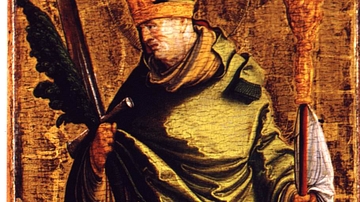
Image
St. Cyprian
Cyprian (Latin: Thaschus Cæcilius Cyprianus; c. 200 – September 14, 258 CE) was bishop of Carthage and a notable Early Christian writer, many of whose Latin works are extant.
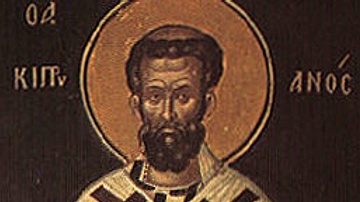
Image
Icon of St. Cyprian
Cyprian (Latin: Thaschus Cæcilius Cyprianus; c. 200 – September 14, 258 CE) was bishop of Carthage and a notable Early Christian writer, many of whose Latin works are extant.

Image
Relic of St. Cyprian
Cyprian (Latin: Thaschus Cæcilius Cyprianus; c. 200 – September 14, 258 CE) was bishop of Carthage and a notable Early Christian writer, many of whose Latin works are extant.
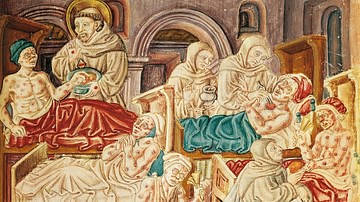
Article
Reactions to Plague in the Ancient & Medieval World
Throughout history, epidemics and pandemics of plague and other diseases have caused widespread panic and social disorder even, in some instances, when the people of one region were aware of a pervasive infection elsewhere. In the case of...
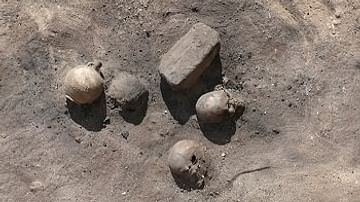
Image
Victims of Cyprian plague
Archaeologists in Thebes have discovered a burial for victims of the 3rd-century CE Cyprian Plague.

Article
Plague in the Ancient & Medieval World
The word 'plague', in defining a lethal epidemic, was coined by the physician Galen (l. 130-210 CE) who lived through the Antonine Plague (165 - c. 180/190 CE) but the disease was recorded long before in relating the affliction of the Plague...

Video
The Plague of Cyprian (249 to 262 A.D)
This time on the History of the Papacy Podcast's Sidetrack episodes, we will take a closer look at the impact of the Plague of Cyprian on the growth of the early Christian movement. We will see if a major plague can actually help a movement...
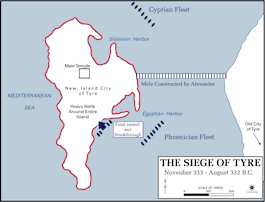
Article
Alexander's Siege of Tyre, 332 BCE
After defeating Darius III at the battle of Issus in November 333 BCE, Alexander marched his army (about 35,000-40,000 strong) into Phoenicia, where he received the capitulation of Byblus and Sidon. Tyrian envoys met with Alexander whilst...